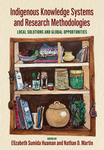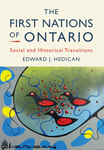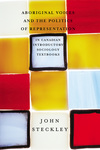We don’t actively support Internet Explorer
It appears that you are using Internet Explorer, which has been discontinued by Microsoft. Support has ended for versions older than 11, and as a result you may face security issues and other problems when using it.
We recommend upgrading to a newer browser such as Firefox, Google Chrome, or Edge for a much better experience across the web.
While this site may work with Explorer, we are not testing and verifying it, so you may run into some trouble or strange looking things.
Overview
The Indigenous Experience: Global Perspectives introduces upper-level undergraduate students to some of the richness and heterogeneity of Indigenous cultures. Written by top scholars in the field, the readings explore common themes and experiences of indigeneity that persist across geographic borders. The first section examines the processes of conquest and colonization, while the second section addresses genocide and the problem of intention. The remaining readings interrogate the social constructs and myths promulgated by colonialism and explore the politics of resistance, struggles for justice, and future models of constructive engagement.The examples span the globe from the Indigenous nations of Turtle Island—such as the Plains Cree, the Haudenosaunee nation of Kahnawake, and the Métis—to the original peoples of the South Pacific, including Aboriginal Australians, the Maori of Aotearoa, and the Rapanui. Other Indigenous peoples represented in this volume include the Guaraní, the Saami, the Ainu, and the Ogoni people. Combining historical narratives with complex conceptual issues and strong pedagogical support, The Indigenous Experience is a welcome addition to the literature of Indigenous Studies.
Table of Contents
PrefaceIntroductionPART I: COLONIZATION AND INDIGENOUS PEOPLESChapter 1: Indigenous Peoples – David Maybury-LewisChapter 2: Trade, Slavery, and Colonialism – Grant McCallChapter 3: The Ecology of Ainu Autonomy and Dependence – Brett L. WalkerChapter 4: Hawai'i Under Non-Hawaiian Rule – Michael Kioni Dudley and Keoni Kealoha AgardChapter 5: Colonizing Knowledges – Linda Tuhiwai SmithPART II: COLONIALISM, GENOCIDE, AND THE PROBLEM OF INTENTIONChapter 6: Extract from A Little Matter of Genocide: Holocaust and Denial in the Americas 1492 to the Present – Russell MeansChapter 7: Settling In: Epidemics and Conquest to the End of the First Century – Noble David CookChapter 8: Confronting Australian Genocide – Colin TatzChapter 9: "Killing the Indian in the Child": Four Centuries of Church-Run Schools – Suzanne Fournier and Ernie CreyChapter 10: The Guarani: The Economics of Ethnocide – Richard H. RobbinsPART III: SOCIAL CONSTRUCTS OF COLONIALISMChapter 11: The West and the Rest: Discourse and Power – Stuart HallChapter 12: Paths Toward a Mohawk Nation: Narratives of Citizenship and Nationhood in Kahnawake – Audra SimpsonChapter 13: The Criminalization of Indigenous People – Chris CunneenChapter 14: The Indians Are Coming to an End: The Myth of Native Desolation – Matthew RestallChapter 15: "We Must Farm to Enable Us to Live": The Plains Cree and Agriculture to 1900 – Sarah A. CarterPART IV: THE INDIGENOUS STRUGGLE AND THE POLITICS OF INDIGENEITYChapter 16: Imagining Civilization on the Frontiers of Aboriginality – Anthony J. HallChapter 17: Saami and Norwegians: Symbols of Peoplehood and Nationhood – Trond ThuenChapter 18: The New Politics of Resistance – Ronald NiezenChapter 19: Politics within the Metis Association of Alberta – Joe SawchukChapter 20: "Sovereignty" – An Inappropriate Concept – Gerald Taiaiake AlfredChapter 21: Indigeneity at the Edge: Towards a Constructive Engagement – Roger C.A. Maaka and Augie FlerasAppendix: Relevant Websites






